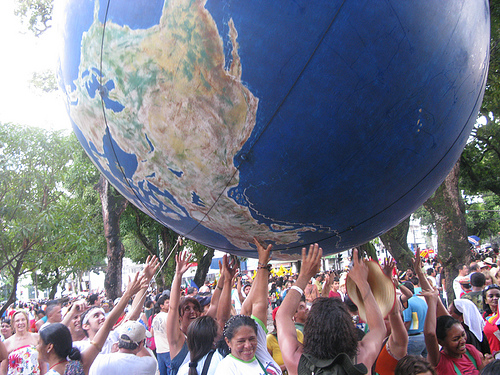 David Hernández-Palmar, a young Venezuelan man from the Wayuu Indigenous community, will be in New York City this Saturday to help present a documentary at the 30th Annual Native American Film and Video Festival.
David Hernández-Palmar, a young Venezuelan man from the Wayuu Indigenous community, will be in New York City this Saturday to help present a documentary at the 30th Annual Native American Film and Video Festival.
“Owners of the Water: Conflict and Collaboration over Rivers” was created by Hernández-Palmar together with Caimi Waiassé (a Brazilian Xavante man) and U.S. Anthropologist Laura R. Graham. It chronicles an international campaign to protect Rio das Mortes River Basin in Brazil, a vital resource for the Xavante community that was threatened by soya production and related deforestation. The Xavante blocked a national highway to demand the protection of the basin.
To help tell the story of the Xavante’s struggle, Venezuela’s David Hernández-Palmar lent his talents as an up-and-coming documentarian. For more information about this and other films at the Native American Film and Video Festival, click here.






 The Bank of the South (or in Spanish, Banco del Sur) is an institution that promises to help Latin American countries help themselves.
The Bank of the South (or in Spanish, Banco del Sur) is an institution that promises to help Latin American countries help themselves.
 Latin American leaders met yesterday to talk about what is becoming a pressing global issue: the supply of affordable basic foods. Diets in Central America, South America, and the Caribbean rely on staples like corn, rice, and other grains, and their price has doubled in the last three years. Shortages have caused riots in Haiti and parts of Africa and Asia, and in the U.S., major bulk grocery stores have
Latin American leaders met yesterday to talk about what is becoming a pressing global issue: the supply of affordable basic foods. Diets in Central America, South America, and the Caribbean rely on staples like corn, rice, and other grains, and their price has doubled in the last three years. Shortages have caused riots in Haiti and parts of Africa and Asia, and in the U.S., major bulk grocery stores have  The Latin American television network
The Latin American television network 
